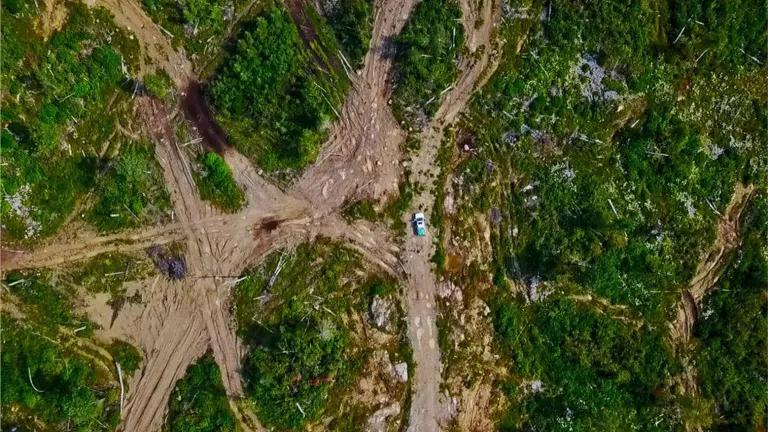Canada’s Prime Minister Harper is set to speak before the Council on Foreign Relations to push a pro-tar sands agenda defending against growing opposition to the influx of tar sands to the United States. The Prime Minister's newest appeal comes as the timeline for the controversial decision on the Keystone XL tar sands pipeline has slipped to later this year. As the Prime Minister gets ready to speak today, a new campaign supported by NRDC was launched by a group of national and international scientists, economists, academics and experts. The Tar Sands Reality Check campaign counters the misinformation campaign directed at the U.S. and international public about tar sands. The truth is the rapid expansion of tar sands planned by the Canadian government and big oil will have wide-ranging effects on climate, land, and water. This tar sands expansion plan is the primary barrier for Canada meeting its international climate targets. Meanwhile, the U.S. is demonstrating it has a strong potential to meet its international climate target – a goal that President Obama has committed to meeting. Consequently, Canada and the U.S. are on very different paths to combat the international problem of a changing climate. The failure of countries like Canada to meet near-term international climate targets should be a concern to the United States who views climate security as an issue of international significance.
Canada's Public Relations Campaign Doesn’t Explain How Canada Won't Meet Its Climate Target
The Canadian government's most recent public relations campaign delivers a new message promoting the fact it has adopted the same international climate target as the United States. But adopting the same target is not the same as meeting the target. The main thing that stands in the way to Canada meeting its climate targets is the fast pace of growth of Canada’s tar sands emissions. Government projections indicated the growth in emissions from tar sands are so large it would cancel out all of the reduction that other parts of the economy are expected to make. The tar sands are already Canada’s fastest growing source of pollution
Canada ranks among the world’s top 10 greenhouse gas polluters. And one of its most significant climate problems is its tar sands industry. While the U.S. and Canada have mirror climate targets, they are taking on very different trajectories. Both countries have adopted international targets to reduced greenhouse gas emissions for 2020 (a 17 percent reduction below 2005 emission levels). Credible sources (including the Canadian government) acknowledges that Canada is nowhere close to hitting its 2020 target. Indeed, reputable sources such as the National Round Table on the Environment (not defunct), Canada’s Auditor General and the Environment Canada’s own projections have concluded Canada will not hit its target unless significant, new measures are taken. In the U.S., several respected American think tanks (Resources for the Future and the World Resources Institute) have reported that the U.S. is likely to hit its target if the Obama administration moves ahead on policy choices using existing legislation as President Obama has indicated he would do.
Climate Scientists Are Saying It’s Time to Scale Back Pace and Scale of Tar Sands
Last week the world hit a new milestone. Atmospheric concentrations of CO2 crossed 400 parts per million significantly above what is needed to maintain a stable climate. In the wake of the Prime Minister’s visit to the U.S., three of Canada’s respected scientists sent a letter to the Council on Foreign Relations urging a more balanced debate on tar sands development. In the letter, they said:
The pace and scale of expansion of oil sands and a safe climate for all of us cannot co-exist. Unless the exploitation of the oil sands is brought under control, in a responsible manner, Canada and the world will have no hope of keeping global warming below the promised 2 degrees Celsius.
Another letter to Canada’s Minister of Natural Resources just a week ago from a dozen climate scientists said the Canadian government was on the wrong track in its advocacy for its tar sands industry
In short, we are not convinced that your advocacy in support of new pipelines and expanded fossil fuel production takes climate change into account in a meaningful way… If we truly wish to have a “serious debate” about climate change and energy in this country, as you have rightly called for, we must start by acknowledging that our choices about fossil fuel infrastructure carry significant consequences for today’s and future generations.
Climate impacts of tar sands and the Keystone XL pipeline
Prime Minister Harper’s appeal to the U.S. won’t change the fact that the science has shown again and again that producing tar sands oil is much more greenhouse gas intensive than conventional oil. Consequently, the climate impacts from the Keystone XL pipeline will be more significant than a conventional oil pipeline – a conclusion made by the U.S. Environmental Protection Agency casting doubt on the analysis conducted by the U.S. State Department. Citizens across the U.S. oppose a new pipeline because is locks in infrastructure enabling the transportation of carbon-intensive fuel into the United States taking a major step back in the U.S. fight against climate change.
- The total annual carbon pollution from producing and consuming the tar sands transported by Keystone XL would be 181 million metric tons.
- The total carbon pollution from producing and consuming the tar sands transported by Keystone XL would be equivalent to the emissions from more than 37 million cars.
Canada’s primary problem is its pursuit of an extreme pace and scale of tar sands development and the corresponding lack of a credible climate plan. The new Tar Sands Reality Check campaign will bring a more balanced view of the true impacts of tar sands development, Canada’s failed climate record, and the weak regulatory regime in place to prevent against even more devastating impact in the longer-term. It's time to bring reality to the tar sands debate.



